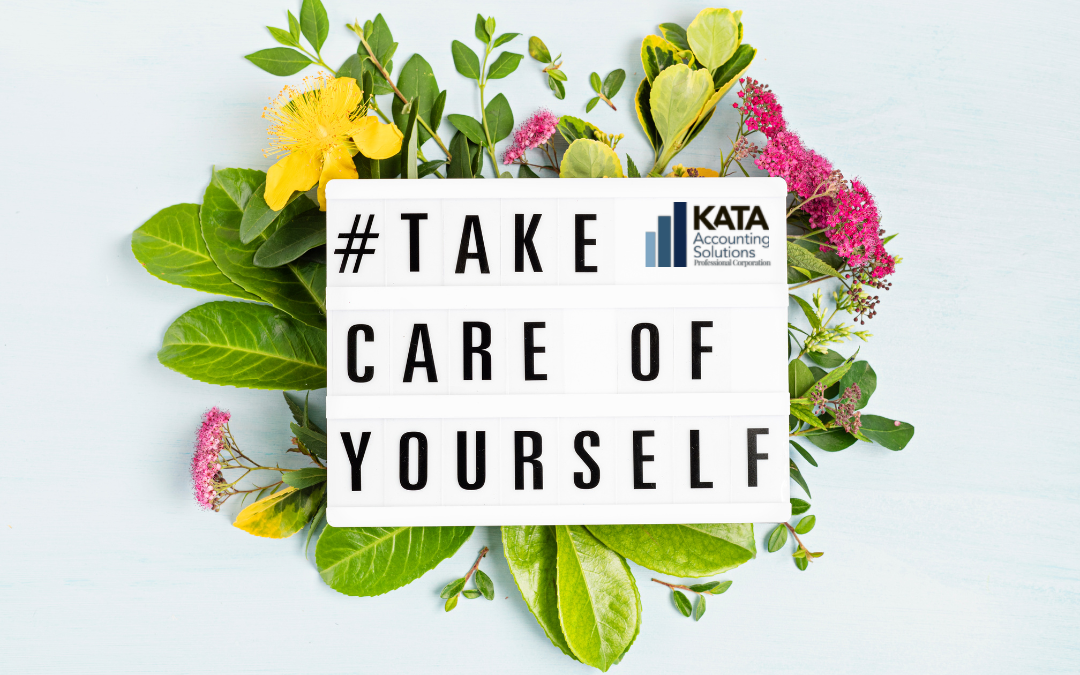Mental health and productivity
Mental health and productivity are interconnected. It is essential to prioritize mental health in our daily routines.
Here are some smart tips to help maintain good mental health and increase productivity.
Take Breaks
Taking a break gives your mind a chance to rest and recharge, making you more focused and productive. A 2011 study by the University of Illinois states that taking breaks can improve productivity and focus. They suggest a 15-minute break every hour to keep your mind fresh.
But let’s be honest, most people balk at the idea of timed breaks every hour and cannot afford to do so if they want to keep their jobs.
So, I recommend a pause.
You can accomplish intentional focus in a few seconds by touching your heart and feeling your heartbeat as you take deep breaths. If you can, washing the mug you used for coffee can also give your mind the space it needs, even if this is a fifteen-second activity.
Practice Mindfulness
Mindfulness is the practice of being fully present in the moment and aware of your thoughts and feelings. It can improve productivity by increasing focus and concentration. Try practicing mindfulness for a few minutes each day, and you will see benefits. There are many ways to do this, but I’ll share some of my favourite tools.
- Choosing silence, whereas you ordinarily turn on the radio, TV or a podcast. It also includes sitting in companionable silence with one another without the need to fill the space with talk.
- Letting your thoughts run without fixing or responding to them
- Noticing your feelings without physically reacting to them or judging them
- Focusing only on the task at hand, for example, while eating, paying attention to each bite and swallowing before taking the next
Get Enough Sleep
Lack of sleep can lead to anxiety, depression, and decreased productivity.
According to a January 2022 Canadian Mental Health Association report, adults need between 7-9 hours of sleep each night. So, try to establish a regular sleep routine and stick to it. If this isn’t something you can do or reliably commit to, see if you can take 30-minute naps during the day or a 1.5-hour sleep. Even if you can’t entirely fall asleep during the day because of obligations or feasibility, sit or lie silently for a few minutes. You would have to be still and not engage your mind, say by watching videos or chatting on your phone or even reading a book, for your heart rate to drop and your breaths to become deep and even as though you were asleep. This is one of my favourite ways to “trick” my body into getting rest. I do this by being very silent and thought-free and letting my breath slow and deepen.
Exercise
Exercise has been shown to reduce stress and anxiety and improve mood. It can also increase energy levels, making you more productive throughout the day.
According to the Canadian Mental Health Association, adults should aim for at least 150 minutes of moderate-intensity weekly exercise. How do you reasonably achieve this without losing your mind over your missed exercise goals?
I love to break it up to coincide with other daily goings. It isn’t unusual for me to throw on some tunes and run on the spot for half an hour or do some intentional heavy lifting with gardening or cleaning the house. Running up and down the stairs on a timer is another example. Also, nothing beats a good old walk around the block after a meal or instead of a TV show.
Stay Connected
When we feel connected to others, we feel happier and more supported.
This can positively impact productivity, as we feel more motivated and focused. So, make sure to stay connected with friends and family, even if it’s just through a quick phone call or text. Often, we are so busy that we forget to work on our relationships, but most people will agree that when life hits you with surprises, people – not inanimate passions, work, or projects- keep you going. Being connected enables you to detangle yourself from what isn’t working in your life and gives you perspective on what is. No one’s gravestone ever read, “Worked hard and had a great job,” so please keep your connections honest and engaged to experience the benefits. I do this by plugging visits into the calendar, intentionally creating time for them, and ensuring that time is spent in solid connection – not browsing my phone or watching a show I could watch at home alone.
In conclusion, mental health and productivity are closely linked, and caring for your mental health can help improve productivity. You can maintain good mental health and increase productivity by taking breaks, practicing mindfulness, getting enough sleep, exercising regularly, and staying connected.
If you struggle, please seek professional help and advocate for yourself. People often believe they are okay or can overcome their struggles, but this isn’t necessarily the case for everyone. If you have no problem taking in your car for regular maintenance, prioritize your mental health, which also requires maintenance.
—
Julia Katsivo Carter is the Founder of Successful & Smart Business Coaching, where she coaches small business owners and their teams in mindset and strategies.
